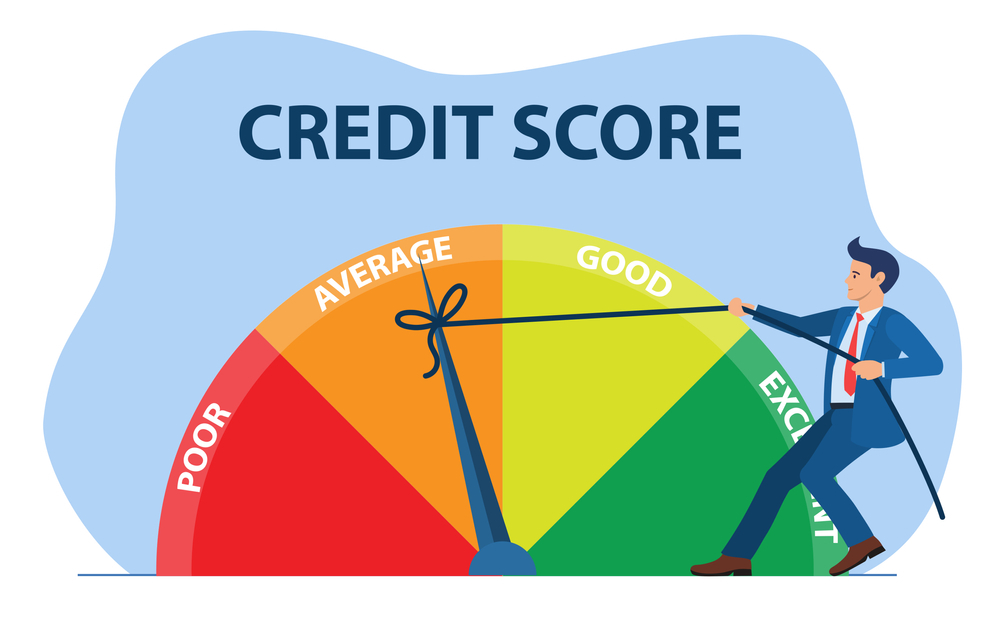Understanding and Improving Your Credit Score
What Goes into Your Credit Score
Your FICO credit score is calculated based on key factors in your credit report from the three major credit bureaus - Equifax, Experian and TransUnion. Each bureau has its own version of the FICO model, but the factors that influence your score are consistent across all three. If your credit score is currently below 600, your credit report likely contains some combination of the following characteristics that are dragging your score down:
- Recent history of delinquent or late payments on accounts
- Currently delinquent accounts, including accounts in collection status
- High credit card balances above 30% of the available credit limit
- Public records like bankruptcies, foreclosures, liens or judgements
Your score is impacted both by negative items and how long ago they occurred. Older delinquencies and collections will have less of an effect over time as they age on your credit report. Taking quick action to improve recent issues can provide a noticeable boost.
Fixing Late Payments and Delinquent Accounts
Pay late bills on time going forward to avoid further harm. Past late payments will gradually weigh less as more on-time payments are reported. Paying past due accounts in full brings them back to current status and raises your score. For accounts in collections, you may be able to settle for less than the full amount owed. Ask the collection agency if they’ll remove the account from your credit report in exchange. Otherwise, leave long-dormant collections alone unless pursued for payment, as reopening the issue could lower your score.
Negotiating with creditors and collectors
Creditors and collection agencies have an incentive to work with borrowers, as payment or settlement is preferable to no resolution. Communicate openly about your situation and ability to pay, while also standing firm on reasonable terms. Compromise may lead to removing or updating negative items to boost your credit standing over time.

Reducing Credit Utilization and Balances
One of the most impactful ways to improve your credit score is reducing your credit utilization ratio, which is the portion of your available revolving credit that is in use. Aim to keep all credit card balances below 30% of the credit limit. Paying down high card balances brings immediate score gains, as lenders see lower risk of default. For the greatest benefit, pay statement balances in full each month to report $0 debt while maintaining credit availability. This strategy avoids interest charges while establishing a positive credit history.
Lowering debt strategically
First, stop adding to existing debt balances through new purchases. Then, focus extra payments on cards with the highest rates or minimum payments to eliminate accounts most quickly. Building momentum with early wins motivates continuing progress to become debt-free. Maintaining utilization below 10% shows optimal credit management to lenders.
Reviewing and Disputing Credit Report Errors
To fix credit report mistakes, you must first inspect what is reported about your credit history. Federal law entitles each consumer to one free credit report annually from each of the three bureaus. Review reports closely for discrepancies compared to your own financial records. Common errors include mishandled identity details, incorrect account balances or status, and items reporting to the wrong person. Dispute issues in writing to trigger an investigation.
Pursuing credit reporting disputes
Include your full name, current and prior addresses, Social Security number or government ID, date of birth, phone number, and a detailed explanation of the disputed item, along with any documentation proving your case. The bureaus must research within 30 days and notify you of the results. Unverified errors must be removed to prevent further score impact. If disputes are denied, a consumer statement may be added to present your side. Consider also contacting the data furnisher originally reporting the information to check and correct their records. Persistence is key to overcoming credit report inaccuracies through the dispute process.
Strategies for Raising Low Credit Scores Over Time
Consistent, positive actions like timely payments combined with reducing debt and resolving issues gradually lifts credit scores by hundreds of points or more over 12-24 months. While quick fixes are alluring, real repair requires commitment.
Long term management of credit scores
Sign up for free credit monitoring to check for identity theft red flags and track score progress. Creating a monthly budget keeps spending aligned with income to avoid future late payments or collections. And establishing emergency savings prevents relying on credit when unplanned expenses strike. Following good habits ensures no surprises damage your history or halt gains. Automate payments wherever possible through bank bill pay. Review reports quarterly to maintain accountability. Together, prudent management techniques sustainably boost scores higher with time.
Options for Credit Building with Bad Credit
If your scores remain very low, traditional credit may reject applications. But rebuilding options exist even with damaged credit.
Secured credit cards for rebuilding
Secured cards require a refundable security deposit as collateral, usually equal to the credit limit. Use and pay on time like a regular card reports positive data and opens the door to graduating to unsecured cards down the line. These lower-risk starter products expand available credit while proving responsible usage habits. Alternative lines of credit from non-bank lenders may also accept subprime applicants, though rates tend higher than standard cards. As scores lift over 6-12 months of on-time repayments, expand or transition credit sources to push rebuilding further. Have patience - gains will follow consistency.
When to Consider Credit Counseling or Repair
For exceptionally poor credit beyond self-help capabilities due to multiple bankruptcies or foreclosures, working with an accredited credit counseling non-profit offers structured programs pairing counseling and debt management plans.
Professional credit repair expertise
Credit repair companies investigate reports, dispute errors aggressively, and negotiate with lenders on their clients’ behalf to potentially speed resolution timeline at an hourly fee. Due diligence verifies credentials, complaint histories, and understanding all applicable consumer protection laws. While results vary, expert guidance navigates complex options for rebuilding. Alternative credit building loans aim to shorten rebuilding duration through responsible usage reporting clean payments month over month. Not all products legally function as advertised though, so diligent vetting protects borrowers. For very damaged credit, outside assistance complements self-help towards ultimate credit restoration goals.
Maintaining Hard-Won Credit Gains Long Term
Reaching target credit scores signifies turning a corner towards greater access and lower costs of capital. Yet repaired credit still requires maintenance for sustained benefit over years to come. Continuing the financial foundation built positions consumers well for their financial futures.
Protecting rebuilt credit health
Monitor reports regularly for signs of identity theft promptly solved through dispute resolution. Manage minimum payments responsibly juggling daily finances. Research major loan and credit applications thoroughly comprehending terms impacting debt and utilization before committing long-term. Credit education cultivates empowerment regarding personal creditworthiness and rights under consumer protection legislation. With dedicated care, shiny new scores stay bright indefinitely.
By understanding creditscoring logic and implementing strategic improvement tactics either independently or through advisors, consumers regain control towards high creditworthiness through perseverance. Hard work raises damaged credit issues to positive records opening new opportunities. Sticking to financial disciplines maintains rewards of credit recovery achievements.
